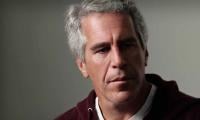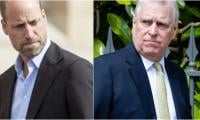The end of elite capture
How did we miss such a cataclysmic event in our history? Dr Farrukh Saleem, the government’s spokesperson on economy, has finally pulled the blinkers from our eyes. Naya Pakistan has already ended the elite capture of Pakistan’s politics. What is even worse: we did not even notice when we were being yoked by the dirty elite.
History stands corrected – the very history that remembers Moses but has chosen to forget Jesus Christ. As Dr Farrukh Sahib has put it so succinctly in his column in these very pages last week, the process of the elite capture of Pakistan’s state and its resources was set in motion as late as 2006. In that fateful year, “Nawaz Sharif and Benazir Bhutto signed the Charter of Democracy that laid the foundation for the Pakistani elite to capture the state of Pakistan (and the resources in it).”
Imagine the audacity of these elites. Just when god-fearing Musharraf was serving the masses with the help of plebeians like the Chaudhrys of Gujrat and their tribe of sadiq and amin electables, this bunch of criminal elite were hatching a conspiracy to capture the state and the resources in it.
Now we know that the real purpose behind the scheme was to launder money out of Pakistan on a mega scale. Money laundering, according to Dr Farrukh, is described as the “process of creating the appearance that large amounts of money obtained from criminal activity originated from legitimate sources”. The aim of the two largest parties at that time was not just money laundering but money laundering on a mega scale. This kind of mega money laundering required an instrument like the Charter of Democracy because mega money laundering “is a collective endeavour. For mega money laundering, the mega money-launderers need to capture the state.”
So the state and its resources were captured by the political elite in 2008 and this capture luckily ended after a decade in 2018, as has always been the case. This elite capture was achieved through the process of the elected government taking control of the executive institutions of the state.
“Mega money-launderers need to capture the Securities and Exchange Commission of Pakistan (SECP) so that fictitious companies can be registered and are allowed to operate. Mega money-launderers need to capture licensed banking entities so that fictitious accounts can be opened and are allowed to be operated. Mega money-launderers need to capture licensed banking entities so that suspicious transaction reports (STRs) can be suppressed. Mega money-launderers need to capture the State Bank of Pakistan (SBP) so that [the] SBP’s Financial Monitoring Unit (FMU) takes no action on STRs.”
So far we had believed that the Charter of Democracy diluted this control and increased transparency by making the opposition a stakeholder in crucial decision-making processes. Similarly, the opposition was empowered by handing it control of important parliamentary committees, particularly the Public Accounts Committee, to improve democratic oversight. But no – this was the muk-mukao. According to this narrative, the whole political elite minus the PTI and parliament minus the PTI’s sadiq and amin are complicit in money laundering and the very purpose of the political process is money laundering. Money laundering is the overarching problem and the elected politician is the chief culprit.
The only mode of corruption of “elite democracy” is stealing money from the development fund. “Where do the funds for mega money-laundering come from? Answer: There are five sources: At the federal level, the Rs800 billion Public Sector Development Programme (PSDP). At the provincial level, four annual development programmes (ADPs) of over Rs1 trillion. Mega money-launderers at the federal level need to capture the PSDP and mega money-launderers at the provincial level need to capture ADPs and then laugh all the way to the bank.”
In this model, there is no scope of elites peddling their interests through ensuring favourable policies. Non-elite ministers getting permission to build sprawling elite housing colonies in green areas of the capital, sadiq and amin leaders making billions of rupees on ‘rented land’ and not paying taxes because they don’t ‘own’ the land. In other words, skewing the whole economy to one’s own advantage is nothing because it does not involve money laundering.
Without identifying the elite, we can safely say that all the major parties have been captured by the socio-economic groups who have benefitted the most from the nexus between the state and business. This conforms to Dr Farrukh’s definition of state capture: “systemic political corruption in which private interests significantly influence a state’s decision-making processes to their own advantage”.
These groups are over-represented in the PTI itself. The prospect of the PTI’s victory attracted them to new pasture and they came in hordes. They invested heavily into the revolution and must be waiting to gain as they always have. Will the PTI be able to formulate and implement policies that defy their interests and put people at the centre of policymaking?
Let’s assume that history has ended and the elite capture of the Pakistani state and its resources is over and with it the money laundering is gone. Let’s not ask if our balance of payments crisis will resolve itself now as billions and trillions of dollars of Pakistani wealth will not be laundered abroad. Let’s not ask when the two hundred billion Pakistani dollars grazing in Swiss meadows will be herded back to the Margallas.
Perhaps, we should benefit more by focusing on the process and on the policies, rather than the nature of the elite. We should benefit more by looking at the beneficiaries of the policies and actions of the government.
Let’s focus on elitist policies instead. Nowhere in the world have the elite relied only on stealing from development funds. Pakistani elite groups have also benefitted mainly by directing state policies to their own advantage, by not paying their taxes and by extending benefits to the classes that are aligned with their interests.
Let’s ask this: when will the PTI government raise the current level of taxation from 11 percent to 20 percent and direct that money to fulfil its promises of making Pakistan a welfare state? This year, we only saw the government revising the tax targets downward and it is failing to collect even according to the new targets.
Let’s enquire how the PTI will change the current model of housing that gives no hope to the poor to own a house of their own. How many of the five million houses will go to the people whose poverty is linked to homelessness and who have been without a house for centuries?
Let’s go beyond the number of new schools and hospitals and enquire about the outcome. When will illiteracy end in Pakistan? When will our health indicators improve and population growth rate decline to the level of India, Sri Lanka and Bangladesh?
We want an end to rent-seeking in which people are caught with a hand in the till. But we also want an end to the policies that serve elite interests at the cost of the poor majority. “The power elite are not solitary rulers. Advisers and consultants, spokesmen and opinion makers are often the captain of their higher thought and decisions.” The government’s spokesperson on the economy can lead our non-elite rulers in the right direction.
The writer is an anthropologist and development professional.
Email: zaighamkhan@yahoo.com
Twitter: @zaighamkhan
-
 Charlize Theron Delivers Strong Message At 2026 Winter Olympics Opening Ceremony
Charlize Theron Delivers Strong Message At 2026 Winter Olympics Opening Ceremony -
 Lil Jon Reacts To Son Nathan Smith's Death: 'Devastated'
Lil Jon Reacts To Son Nathan Smith's Death: 'Devastated' -
 Bianca Censori Reveals Where She And Kanye West Stand On Having Children Together
Bianca Censori Reveals Where She And Kanye West Stand On Having Children Together -
 Taylor Swift Hypes Olympic Athletes In Surprise Video Message
Taylor Swift Hypes Olympic Athletes In Surprise Video Message -
 Timothy Busfield Charged With Four Counts Of Child Sexual Abuse
Timothy Busfield Charged With Four Counts Of Child Sexual Abuse -
 Kanye West First Contacted Bianca Censori While In Marriage To Kim Kardashian?
Kanye West First Contacted Bianca Censori While In Marriage To Kim Kardashian? -
 Travis Kelce Reveals What His Nieces Really Do When He, Taylor Swift Visit
Travis Kelce Reveals What His Nieces Really Do When He, Taylor Swift Visit -
 Lola Young Makes Career Announcement After Stepping Back From Touring
Lola Young Makes Career Announcement After Stepping Back From Touring -
 Priyanka Chopra Shares Heartfelt Message For Nick Jonas
Priyanka Chopra Shares Heartfelt Message For Nick Jonas -
 Spotify, Major Labels File $13b Lawsuit Over Alleged Music Scraping
Spotify, Major Labels File $13b Lawsuit Over Alleged Music Scraping -
 Travis Kelce Opens Up About Being Backup Plan For His Nieces
Travis Kelce Opens Up About Being Backup Plan For His Nieces -
 Winter Olympics 2026: Chinese Robot Dance Goes Viral In Milan
Winter Olympics 2026: Chinese Robot Dance Goes Viral In Milan -
 Jessica Biel Urged To Divorce Justin Timberlake?
Jessica Biel Urged To Divorce Justin Timberlake? -
 Rebecca Ferguson Gets Honest About Having First Kid With 22 Year Older Man
Rebecca Ferguson Gets Honest About Having First Kid With 22 Year Older Man -
 Epstein Ties: UK Police Search Properties In Probe Into Peter Mandelson
Epstein Ties: UK Police Search Properties In Probe Into Peter Mandelson -
 Andrew Mountbatten-Windsor’s Friendship With A Child Sex Offender Turns His Future Murkier
Andrew Mountbatten-Windsor’s Friendship With A Child Sex Offender Turns His Future Murkier



